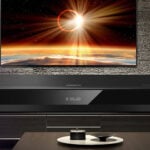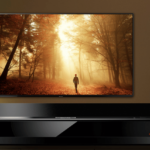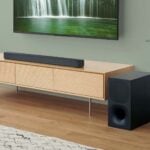Doug Pyle
Second Unit
I am attempting to post this again - it was lost when the database went down yesterday. I'm no expert, but lights that spontaneously dim from time to time surely are a bad sign. More dramatically, my 10-year old Yamaha RX-V870 just blew out - with a loud POP and smoke. This is the second casualty the receiver suffered, the first was related to the power/protection circuits that were replaced (?I think that was the explanation?). The repairman (a warranty shop, though not covered by warranty obviously), said unstable supply of power could have contributed to the problem, but he couldn't swear that was the cause. BTW: I do have an off-the-shelf, Costco-bought surge suppressor, protecting spikes through coax, telephone and A/C plugs.
When I mentioned these problems to the local HT dealer, his reaction seemed like he smelled blood; I don't think I can trust his advice, as it seems like a sales pitch for Monster, even if some of the advice might be valid.
Other evidence of electrical problems: I see almost imperceptibly quick white flashes on my older 27" television on occasion. Not on every viewing; days can go by without it, then it can occur several times in a single day. Also, the A/C perceptibly sucks power - even though it replaced an older A/C with even more dramatic power drain on the home. An electrician who serviced the fuse box and microwave recently, measured fluctuating voltage, averaging 114v. He said I should get protection for my valuable equipment. He also grumbled something unintelligible about the nonstandard wiring in the walls.
I live in a hi-rise condo, 18th floor. I don't own the wiring in the wall so any solution I have control over start at the wall outlet.
Now, I've been planning an upgrade to a flagship receiver, in the $2K-ish range (perhaps Yamaha), along with a general HT upgrade (speakers, DVD, HD display). But with these problems, I may scale back my plan to 2nd tier at least in the receiver (which I'm buying first), and use the saved $1k or so on power conditioners, protection, or even the Monster 2000 voltage regulator (which costs about $1400 - ouch). Being no electronics expert, I really don't know whether these products -- or which of them -- would really solve the kind of problems I have. Given the expense, I want to be sure that:
1) I'm not throwing money at a solution to a different problem than the one I have, and
2) I don't want invest on an HT upgrade and leave it vulnerable to the electrical problems, yet I'm not confident enough to identify what I need to protect the investment.
Any suggestions or advice? One thought I had is to hire an electrician to make an assessment of the power, so I'll know exactly what electrical shortcomings I'm coping with.
Thanks in advance for any replies.
When I mentioned these problems to the local HT dealer, his reaction seemed like he smelled blood; I don't think I can trust his advice, as it seems like a sales pitch for Monster, even if some of the advice might be valid.
Other evidence of electrical problems: I see almost imperceptibly quick white flashes on my older 27" television on occasion. Not on every viewing; days can go by without it, then it can occur several times in a single day. Also, the A/C perceptibly sucks power - even though it replaced an older A/C with even more dramatic power drain on the home. An electrician who serviced the fuse box and microwave recently, measured fluctuating voltage, averaging 114v. He said I should get protection for my valuable equipment. He also grumbled something unintelligible about the nonstandard wiring in the walls.
I live in a hi-rise condo, 18th floor. I don't own the wiring in the wall so any solution I have control over start at the wall outlet.
Now, I've been planning an upgrade to a flagship receiver, in the $2K-ish range (perhaps Yamaha), along with a general HT upgrade (speakers, DVD, HD display). But with these problems, I may scale back my plan to 2nd tier at least in the receiver (which I'm buying first), and use the saved $1k or so on power conditioners, protection, or even the Monster 2000 voltage regulator (which costs about $1400 - ouch). Being no electronics expert, I really don't know whether these products -- or which of them -- would really solve the kind of problems I have. Given the expense, I want to be sure that:
1) I'm not throwing money at a solution to a different problem than the one I have, and
2) I don't want invest on an HT upgrade and leave it vulnerable to the electrical problems, yet I'm not confident enough to identify what I need to protect the investment.
Any suggestions or advice? One thought I had is to hire an electrician to make an assessment of the power, so I'll know exactly what electrical shortcomings I'm coping with.
Thanks in advance for any replies.





